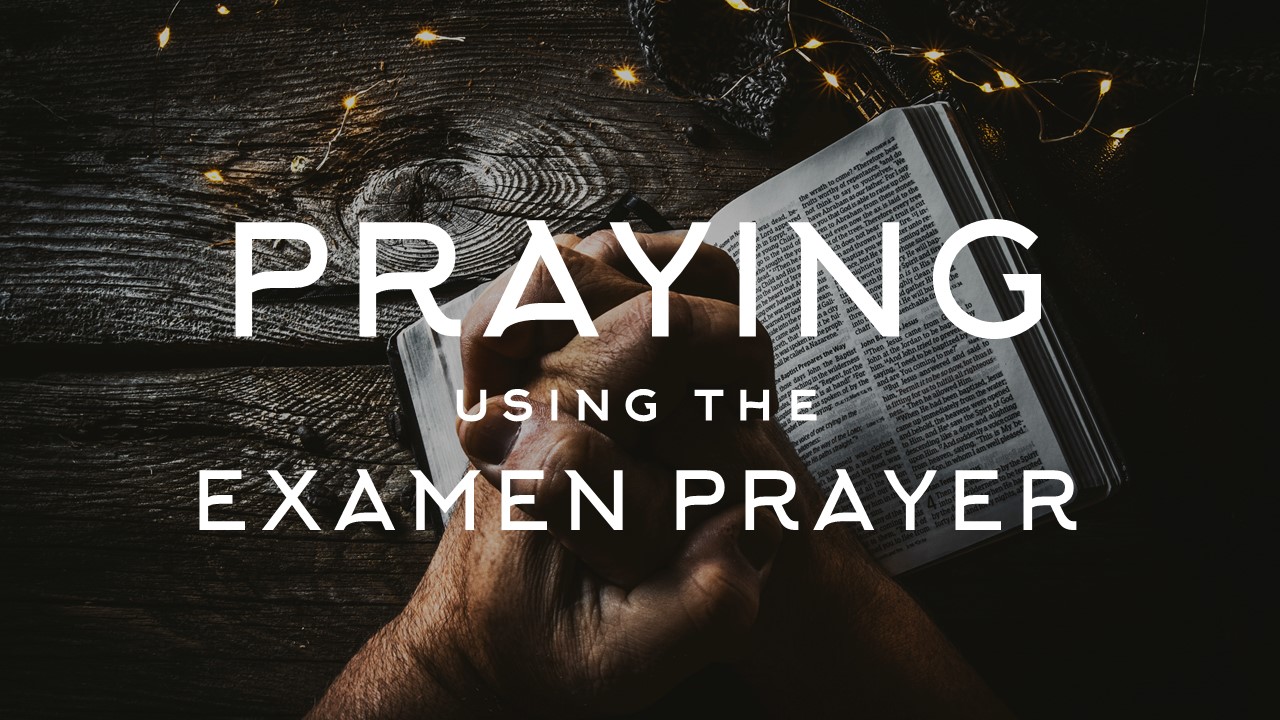From Spiritual Disciplines Handbook, by Adele Ahlberg Calhoun, pages 58-61.
THROUGHOUT THE CENTURIES prayerful people have found direction for their lives through the practice of the examen (also known as the “examination of consciousness”). The examen is a foundational aspect of the Spiritual Exercises of Saint Ignatius Loyola (AD 1491-1556). Ignatius was concerned that the missionaries in his society would know how to detect the movement of God in their lives. He believed that discernment came out of awareness of how God moved uniquely in each soul. The examen provides a way of noticing where God shows up in our day. It is a practice that attends to what we might otherwise miss in the press of duties and busyness. The questions of the examen open our attention to how God’s internal movement is present in our external comings and goings. They lead us to listen deeply to the data of our lives. These questions help us pay attention to our mental state, our body responses and our emotional baggage. Our insomnia, nervous stomach, difficult interaction and headache can all take their place as a possible way of more deeply leaning into God. The examen helps us recognize the things that bring us death and life. Once these things are known, they become part of our ongoing interaction with God in prayer
The examen can open us to both the difficult and beautiful in our lives, relationships and profession. The examen is also a useful way of reflecting alone or with others on what God is saying to us through a meeting, a class, a meal, a service project, a relationship or a conflict.
Examen questions include:
- For what moment today am I most grateful? For what moment today am I least grateful?
- When did I give and receive the most love today? When did I give and receive the least love today?
- What was the most life-giving part of my day? What was the most life-thwarting part of my day?
- When today did I have the deepest sense of connection with God, others, and myself? When today did I have the least sense of connection?
- Where was I aware of living out of the fruit of the Spirit? Where was there an absence of the fruit of the Spirit?
The examen is a wonderful tool for discerning the places you feel most alive, most grateful most present to the fruit of the Spirit as well as the times and places where you do not. Those with melancholic tendencies may find that while the day’s low points stand out clearly, they need the examen to help them recognize the life-giving moments the Spirit brings during the day. Those naturally inclined to optimism need the examen to help them name the difficult things in life. The examen invites attention to both low and high points, recognizing both of these as an invitation to prayer.
Perspective and direction for the future happen through listening to where and how God shows up in your day and then interacting with God in prayer. Awareness of the Spirit’s enlivening and enlightening presence puts you in touch with the kind of person God created you to be. When you begin to recognize who God created you to be you have the raw material for discerning God’s unique call and design for your life.
Reflection Questions
- How do you tend to recognize God’s presence in your days? How do you respond to God’s presence?
- How does the presence of the fruit of the Spirit in your life reveal God’s presence and His will?
- What has God been doing in your life in the past six months What themes are emerging, and how will you attend to them?
Spiritual Exercises
- Gather together the threads of your daily encounters and activities. Attending to them one at a time, ask yourself some of the examen questions:
- Where did I give or receive love in this activity or interaction? How did I withhold love in this activity or interaction?
- What activity gave me the greatest high? Which one made me feel low? Reflect on where God was in the high and lows of the day. How is God inviting you to pray about these things before you nestle into his arms and fall asleep?
- Light a candle and become still in the presence of Christ. Place your hand on your heart and ask the Holy Spirit to bring to mind the moment of the day you are most grateful for.
- When were you most able to give and receive love?
- Talk to God about what it was like for you to be in that moment.
- What made it important to you?
- Breathe in your gratitude to God. Journal your gratitude to God.
- What have you learned about yourself in this?
- Find a quiet moment to reflect on your day or week. Open your palms and ask the Spirit to show you the moment for which you are least grateful. What made that moment difficult? Be with your feelings: don’t try to change them or make them acceptable. Offer them up to God. Talk to Him about them. Where was God in this moment? You may want to thank God that He is always ready to be with you and talk to you.

